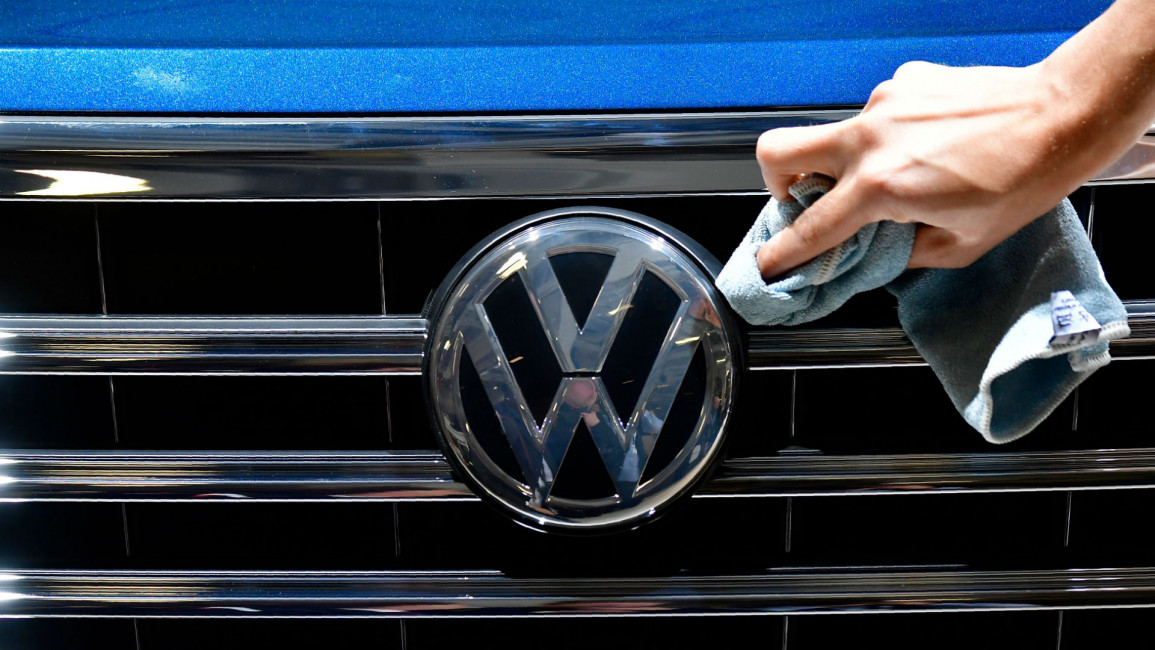Volkswagen hits the brakes on business in Iran: Bloomberg
Volkswagen has bowed to American pressure stemming from the US rejection of the multi-party nuclear deal and will end almost all business in Iran, Bloomberg News reported on Wednesday.
The accord was reached on Tuesday after weeks of talks between the German auto giant and the administration of President Donald Trump, said Richard Grenell, the US Ambassador to Germany, according to Bloomberg.
The company has scrapped plans it announced in July last year to sell cars in Iran for the first time in 17 years, Bloomberg reported, but added VW will still be able to do some business in Iran under a humanitarian exception.
In May, Trump pulled the US out of the deal it reached with Iran and five other countries in 2015. That accord lifted sanctions against Tehran in exchange for restrictions on its nuclear program.
Now, the US is reimposing those sanctions.
The news came as a senior US official said US leaders remain ready to negotiate with their Iranian counterparts.
Trump and Secretary of State Mike Pompeo "have all made clear that we are ready to negotiate and to have those discussions," Brian Hook, the US special representative for Iran, told the Hudson Institute, a Washington think tank.
"There hasn't been any aversion to meeting with the Iranians," he added.
Hook stressed the goal was a "comprehensive deal" with Iran, based on a tough set of conditions Pompeo laid out in May.
The United States seeks a treaty ratified by Congress to replace the nuclear pact Trump withdrew from in May.
Washington insists such a deal should address Iran's ballistic weapons capabilities, its nuclear capacity and its "destabilising" and "malign" regional influence.
But according to Hook, Iran's supreme leader Ayatollah Ali Khamenei, President Hassan Rouhani and Foreign Minister Mohammad Javad Zarif "have all indicated that they're not interested in talking. That's their position, we respect that.”
Other partners in the nuclear agreement include Britain, France, Germany, China, Russia and the EU.
All partners, including the International Atomic Energy Agency, tasked with inspecting Iran's compliance, agree that Iran has stuck by its commitments.
Last month, Iran appeared before the UN's top court accusing Washington of plotting Tehran's "economic strangulation" and has demanded the suspension of US nuclear-linked sanctions against the country.
The Iranian rial stood at around 40,000 to the dollar in October, when Trump said he would no longer certify Iran's compliance with the nuclear deal. The rial has been falling rapidly since then.
The currency now stands above 120,000 to the dollar on the black market.
Trump and Rouhani will both be in New York next week for the United Nations General Assembly.
The US president is to lead a Security Council meeting that will discuss Iran, among other topics.
While Rouhani will hold talks with his French counterpart Emmanuel Macron, no US-Iranian meeting has been announced.
The US re-imposed sweeping sanctions against Iran last month, and a new round of even harsher sanctions is set to go into effect November 5 targeting Iran's vital oil sector.
Follow us on Twitter: @The_NewArab



